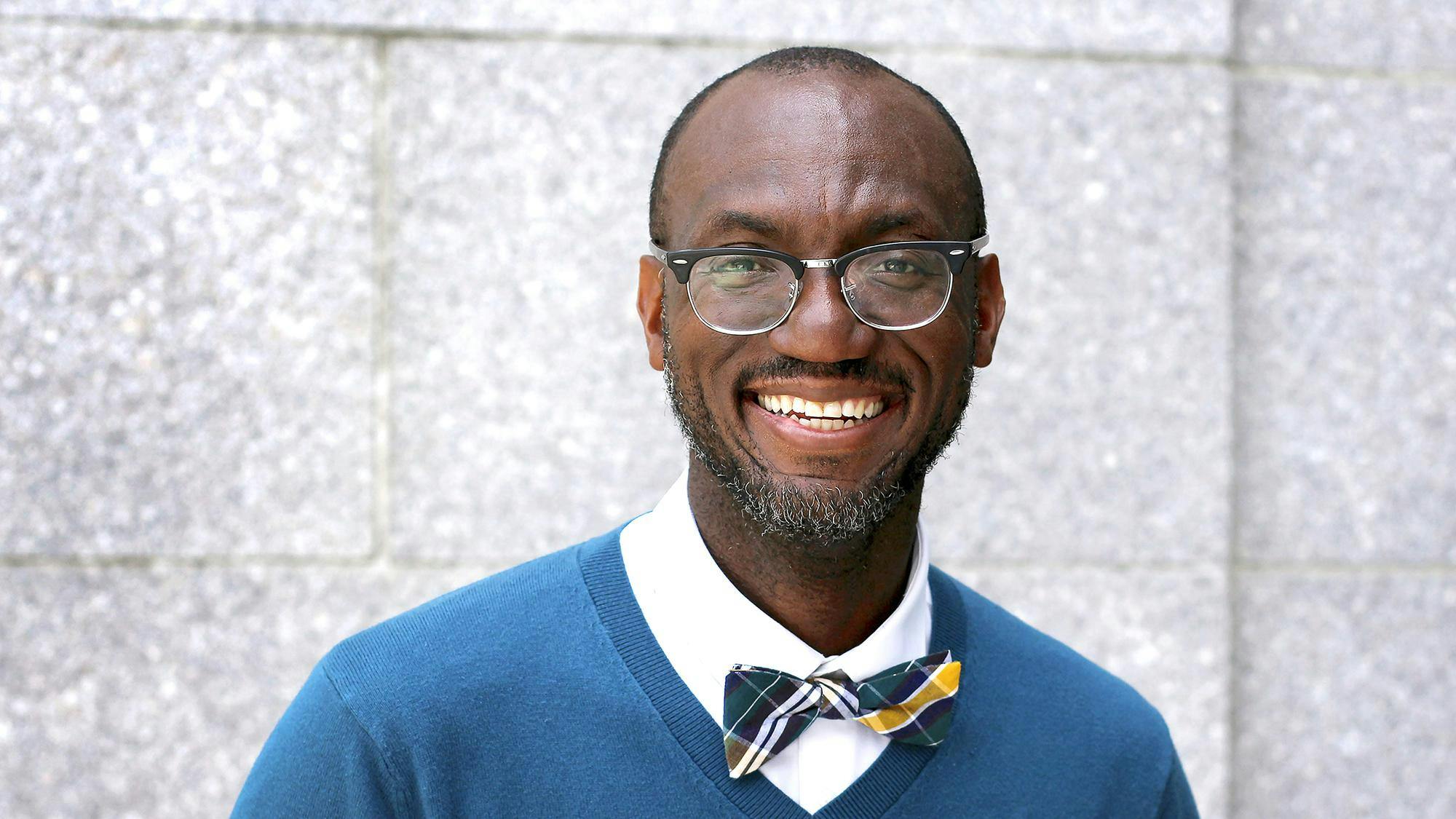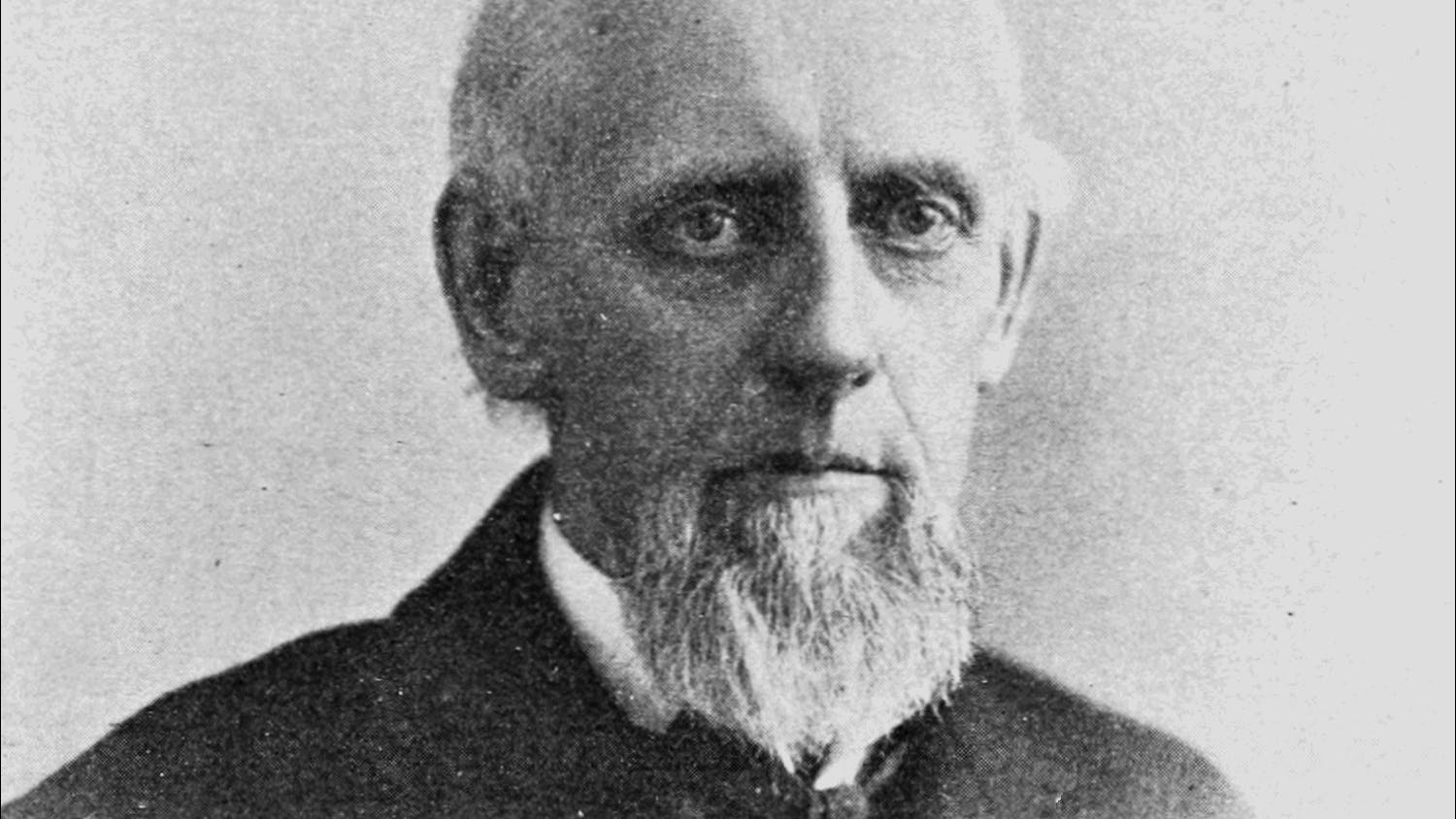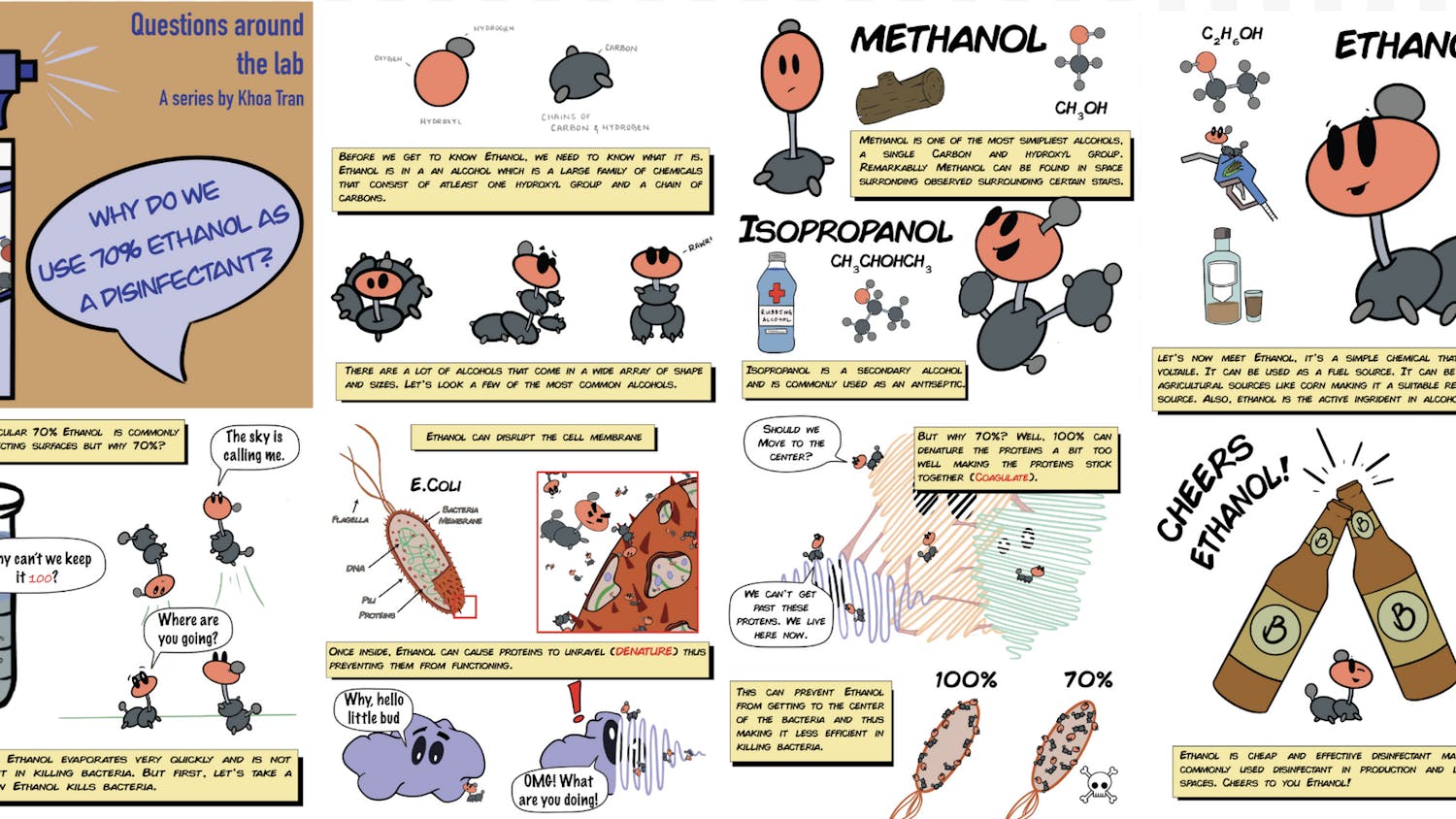On Feb. 24, the LGBT Center and the Center for STEM Diversity hosted Dr. André K. Isaacs, associate professor of chemistry at College of the Holy Cross, in Breed Memorial Hall for a talk and Q&A focusing on queer identity in STEM. Isaacs received his Ph.D. from the University of Pennsylvania, and he currently heads an organic chemistry research lab focusing on copper-catalyzed reactions with click chemistry.
But to his over half a million TikTok followers, he is known as @drdre4000, an educator on a mission to make STEM education feel more welcoming, inclusive and fun.
The event opened with a runway entrance. Isaacs began his talk with a brief presentation on his personal journey regarding how he navigated the challenge of pursuing an education in STEM while being queer.
“I think that’s one of the things people don’t realize is there, at the time, for me … there were no support groups necessarily for queer people,” Isaacs said. “There were no other … queer folks in my Ph.D. program.”
Isaacs was in his third year of graduate school when he came out, and what should have been a freeing experience for him quickly turned into a nightmare.
He lost both friends and family as his queer identity became weaponized against him back in his native country of Jamaica. Being a Jamaican immigrant had already made him an outsider in the social and academic environment he was in, so to also lose the support of those closest to him meant he was completely alone.
“I’ll tell you it was really hard,” Isaacs said. “I almost dropped out of graduate school.”
In previous academic struggles, however, Isaacs was always able to find his way with the help of good mentors like his high school chemistry teacher and his uncle. But in this crucial moment, he needed an ally.
And his Ph.D. adviser was just that.
“He just was real with me: ‘listen, I don’t even have any gay friends on charter, but we just hired a gay professor,’” Isaacs recounted. “‘I’m gonna tell him that he should take you to lunch.’”
This simple act of empathy planted the seeds for what would blossom into the community of allies and peers that Isaacs desperately needed. His experience in graduate school made him realize how indispensable representative mentors could be for queer students, and later he would find himself applying to his alma mater, College of the Holy Cross, to pay it forward.
“I’m gonna go back and queer this place up and make it a cool space so that kids like me might be able to find themselves earlier,” Isaacs said.
Isaacs went on to discuss the ways in which the archetype of a scientist suppresses the unique lived experiences of people with queer and other marginalized identities in scientific work.
“I think we have to … make it clear that we are humans and we are complex people with a lot of identities,” Isaacs said. “If you think about someone who’s trans[gender] without an advanced degree, they have no … overlap with what is a stereotypical scientist and yet we’re all … expected to be the same.”
Isaacs closed the first half of his talk by encouraging members in the audience to share their true selves fully.
“All aspects of who you are is critical to your success as a scientist or as a person in general,” Isaacs said.
The Q&A segment followed shortly after.
When asked to share ways that chemistry is inherently queer, Isaacs answered, “I guess the response is in what ways is chemistry not queer?” He pointed out the way atoms can bond with a wide variety of partners, suggesting that the building blocks of our universe could be portrayed as pansexual.
Isaacs then tackled the issue of the ‘publish or perish’ mentality pervasive in STEM fields, which is the belief among researchers and academics that they must constantly publish new findings or lose funding for all of their work. Isaacs shared firsthand how this promotes a toxic culture around research.
“I’ve actually had colleagues say ‘Oh, I hear you’re going to give this talk … isn’t that taking away from your research?’” Isaacs recalled.
For Isaacs, however, inspiring the next generation of scientists to be comfortable in who they are was a far more valuable contribution to the scientific community than one more day in the lab.
He was then asked about how he handles challenges to his intersectional identities in academia, and he opened up about the pressure to hide those identities that he and many people like him experience. This is why Isaacs feels it is important for him to stand firm in his identity both in the workplace and online, and he finds it rewarding as well.
“I’ve had professors email me saying, ‘Hey, you have inspired me to be more of myself,’” Isaacs shared. “‘I’ve always wanted to wear that skirt, and I think I’m gonna wear it.’”
Finally, on the subject of his online presence, Isaacs revealed some secrets about his TikTok video creation process. He shares a group chat with his fellow dancers, and the members choose each dance unanimously. Not long after, the troupe’s lead choreographer gets everyone into shape, and the filming, editing and posting all happen from Isaacs’ smartphone.
“We have a well-oiled machine,” Isaacs said. “I’ll let you all in on another — Beyonce’s ‘TEXAS HOLD ’EM’ is coming.”






